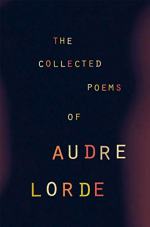|
This section contains 359 words (approx. 1 page at 400 words per page) |

|
Power (Poem) Summary & Study Guide Description
Power (Poem) Summary & Study Guide includes comprehensive information and analysis to help you understand the book. This study guide contains the following sections:
This detailed literature summary also contains Quotes and a Free Quiz on Power (Poem) by Audre Lorde.
The following version of this poem was used to create this guide: Lorde, Audre. "Power." Poetry Foundation Online. https://www.poetryfoundation.org/poems/53918/power-56d233adafeb3.
Note that all parenthetical citations refer to the line number from which the quotation is taken.
“Power” is a free verse poem split into five irregular stanzas, written by American writer, feminist, and activist Audre Lorde. Lorde wrote the poem in 1978, in response to the acquittal of the white police officer Thomas Shea for the murder of Clifford Glover, a ten-year-old Black child. She found out about the news on a radio broadcast while she was driving, and felt so incensed by the injustice that she had to pull over and take some deep breaths. “Power” remains today an immensely relevant statement about the state of race relations and police brutality in America, especially in the context of the Black Lives Matter movement. The poem was also published in Lorde’s book of collected poetry, published by W.W. Norton in 1997.
Lorde worked with numerous textual mediums, writing poetry and essays. Her most famous collection today, Sister Outsider, represents an indictment of the interlocking systems of political oppression that lead to racism, misogyny, and homophobia. Her writing was, for her, an important part of her activism. Poetry, in particular, is “the decision to define ourselves, name ourselves, and speak for ourselves, instead of being defined and spoken for by others,” as she wrote in an essay entitled “The Transformation of Silence into Language.” She also wrote that, for marginalized groups, “poetry is not a luxury.”
“Power” begins with anger and deep sadness in a context of pervasive police violence. The speaker reflects on the uses of language, the differences between poetry and rhetoric. She then goes on to think about the Black children killed by the police force in the name of the American people, and laments the fact that the white police officer absolved himself of guilt by telling a lie during his testimony in court. Finally, the speaker reflects on how she must shape language into poetry rather than rhetoric, in order to harness her power correctly.
Read more from the Study Guide
|
This section contains 359 words (approx. 1 page at 400 words per page) |

|



